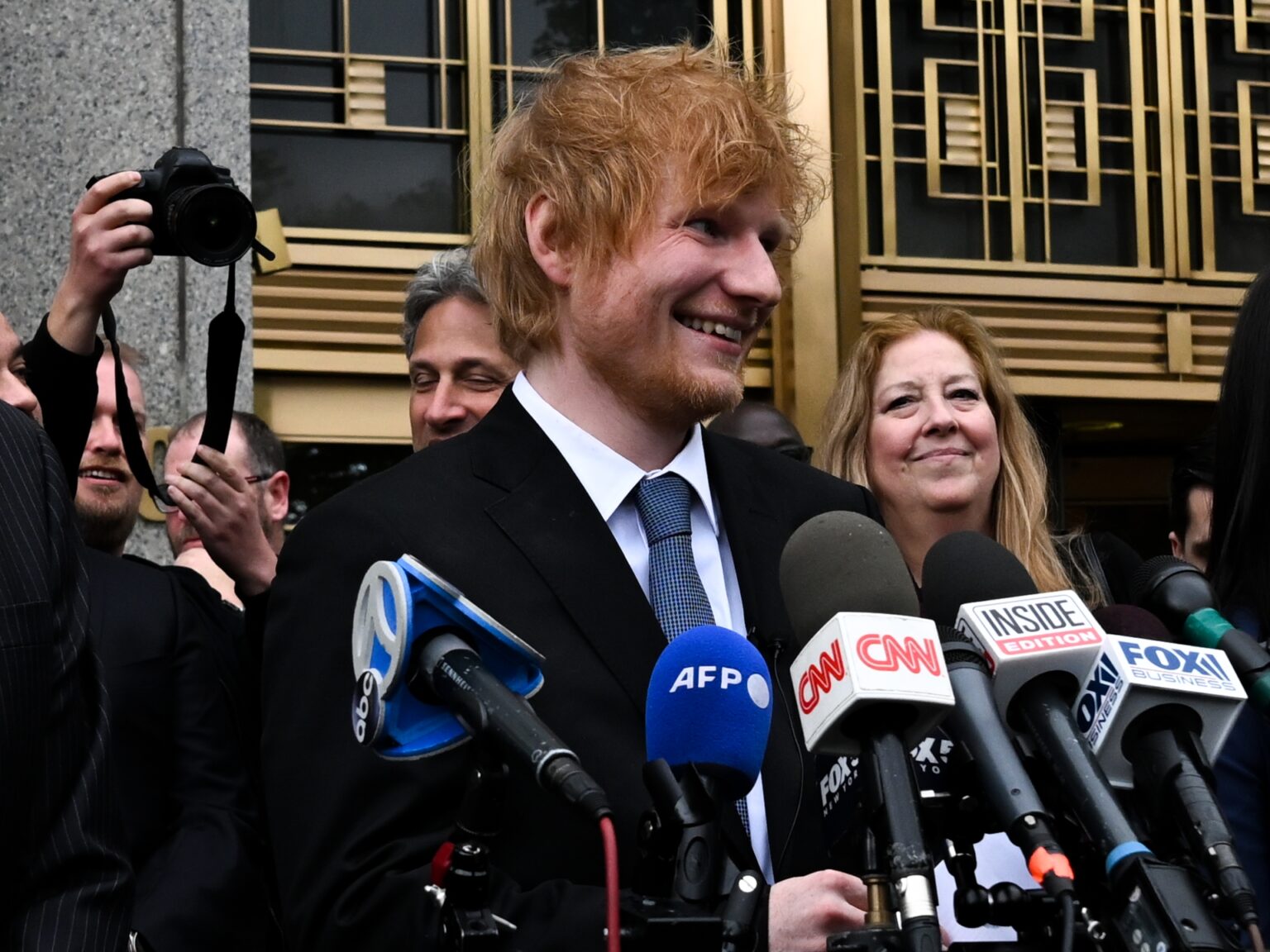Global Courant 2023-05-05 05:50:40
Civil lawsuit filed by heirs of Marvin Gaye, co-writer, closely monitored the implications for musicians’ creative freedom.
British pop star Ed Sheeran has expressed his joy and relief after a US jury found he did not plagiarize Marvin Gaye’s Let’s Get It On when he wrote his smash hit Thinking Out Loud, calling the ruling a victory for creative freedom.
The English musician hugged his team in a Manhattan court on Thursday after jurors ruled he “independently” created 2014’s Grammy-winning song.
The closely watched lawsuit was brought by the heirs of Gaye co-writer Ed Townsend, who sued Sheeran in 2017 for copyright infringement, alleging that Thinking Out Loud copied the “heart” of Gaye’s song, including the melody, harmony and rhythm .
The heirs demanded a share of the profits from Sheeran’s hit.
Out of court, the singer-songwriter told reporters it was “devastating to be accused of stealing someone else’s song,” and was “really happy” with the outcome.
“If the jury had ruled this case differently, we might as well have said goodbye to songwriters’ creative freedom,” said Sheeran.
Industry insiders followed the civil lawsuit closely, citing concerns that it could open the door to future lawsuits and hinder songwriters’ creativity.
It was Sheeran’s second copyright lawsuit in a year. In April 2022, he won a case in London over his song Shape Of You, a huge hit in 2017, saying the lawsuit was symbolic of copyright disputes gone too far.
There have been a handful of landmark music copyright cases in recent years.
One of the most notable was in 2015, when members of Gaye’s family successfully sued artists Robin Thicke and Pharrell Williams over similarities between their song Blurred Lines and Gaye’s Got to Give it Up.
The outcome surprised many in the industry, including legal experts, who viewed many of the musical components mentioned as fundamental and largely existing in the public domain.
In this month’s case, 32-year-old Sheeran testified in court, guitar in hand, playing demos in court to prove that the 1-3-4-5 chord progression in question is a common “building block” of pop music was and could not be owned.
He said his friend and collaborator Amy Wadge first started strumming the chords for the song while visiting his home in England and they collaborated on the lyrics.
A defense musicologist told the court that the four-chord sequence had been used in a number of songs before Gaye’s 1973 hit.
These chords “are a songwriter’s ‘alphabet’, our toolkit,” Sheeran said Thursday.
“No one owns them, or the way they are played, just like no one owns the color blue.”
Joe Bennett, a forensic musicologist at the prestigious Berklee College of Music, told the AFP news agency he was “glad” that “common sense prevailed” in the case.
“In music copyright lawsuits, cases involving one or two bars of music, the plaintiff’s claim of plagiarism is almost always false,” he said. “There are always coincidences, especially with chords and short melodic fragments.”
“Hopefully, this sensible verdict will discourage other false complaints.”
Lawyers for Townsend’s heirs did not immediately comment on the verdict.
Sheeran faces two similar lawsuits in New York brought by investment banker David Pullman’s Structured Asset Sales, who also owns copyrights to Gaye’s song.
Pullman said after the verdict that he and his lawyers had learned from the trial.
“We’ll know what to expect,” Pullman said.



